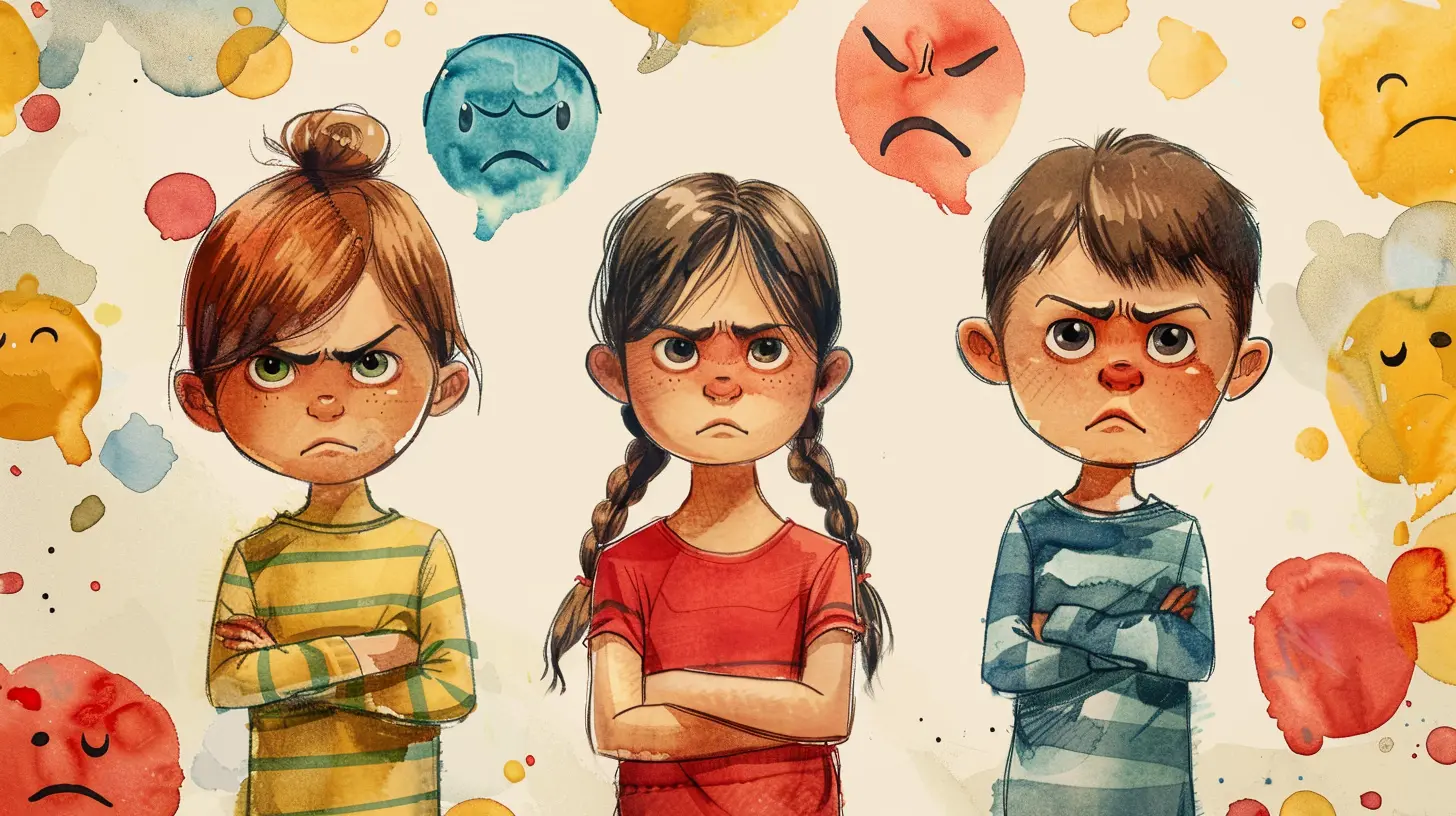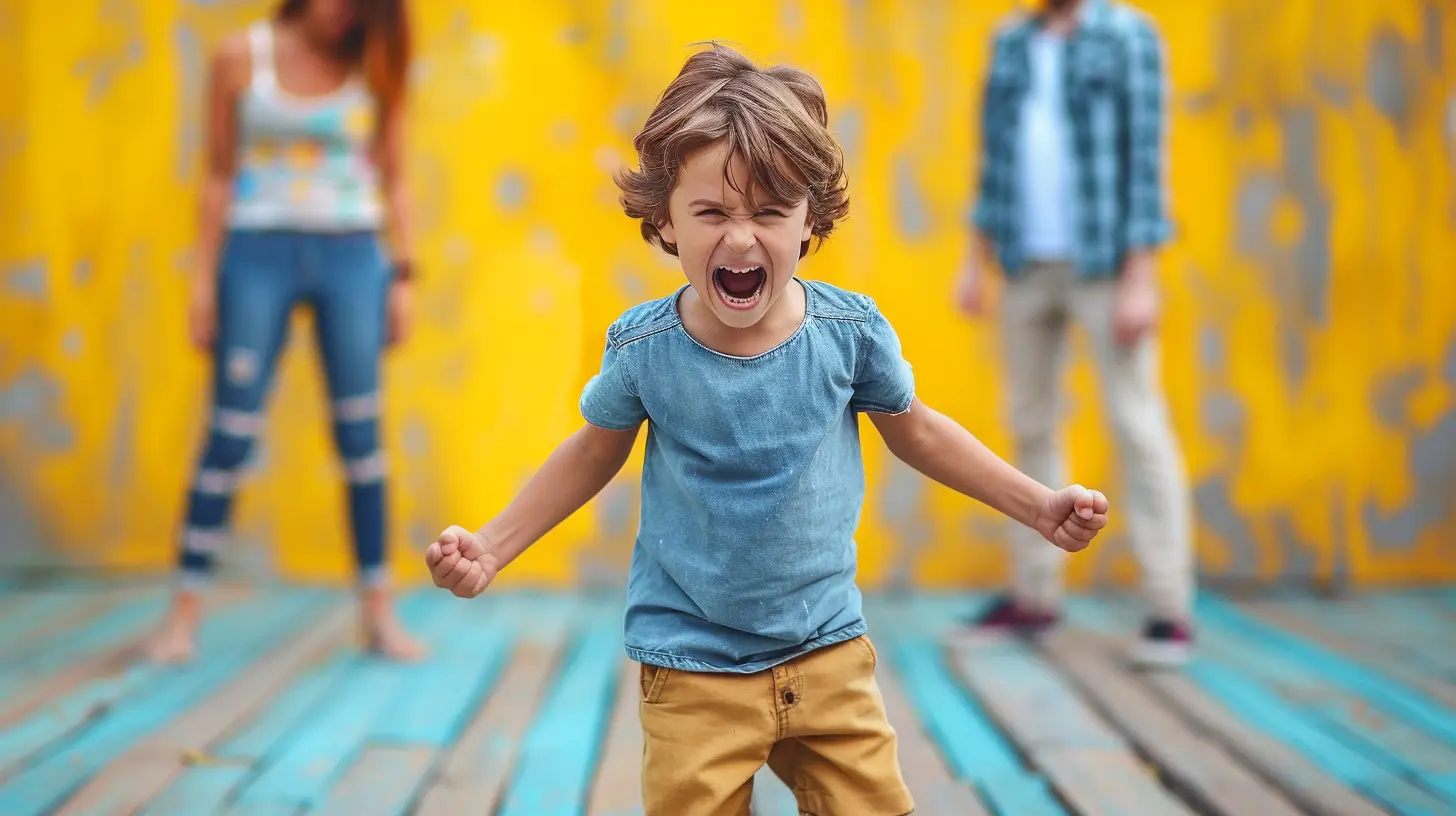What to Do When Your Child Struggles With Social Awkwardness
29 May 2025
Ah, social awkwardness—every parent's worst nightmare, right? You dreamed of raising a little social butterfly, effortlessly flitting from one conversation to another, charming people left and right. Instead, you got a kid who stares at their shoes during birthday parties and replies with "uh-huh" when someone asks about their favorite movie.
Before you spiral into full-blown panic mode, let’s take a deep breath. It’s not the end of the world. Social skills are just like riding a bike—some kids take off immediately, while others are still wobbling with training wheels well into middle school. So, what can you do when your child struggles with social awkwardness? Let's dive into it—sarcasm fully intended. 
Understanding Social Awkwardness in Kids
Let’s get one thing straight: social awkwardness is not a crime, nor does it mean your child is doomed to a lifetime of eating lunch alone. Some kids are naturally introverted or take a little longer to develop their social confidence.But if your child freezes like a deer in headlights when someone says "hello" or clings to you like a koala at playdates, you might want to step in. Social skills are important, like knowing how to tie your shoes or pretending to enjoy your in-laws’ cooking.
Now, before you start forcing them into social boot camp, let's talk about what actually helps. 
Signs Your Child Might Be Struggling (Because Apparently, the Staring at Shoes Wasn’t Enough)
Not sure if your kid’s socially awkward or just really into deep introspection? Here are some telltale signs:- Avoids Eye Contact – They look everywhere except at the person talking to them. Ceiling tiles must be fascinating.
- One-Word Conversations – If “fine” and “good” are the only words in their vocabulary, we may have a problem.
- Struggles with Group Activities – Instead of joining in, they hover nervously like a lost puppy.
- Prefers Solo Play – Nothing wrong with a little independence, but if every group activity turns into “I’ll be over here by myself,” it might be time to intervene.
- Gets Overwhelmed Easily – If social situations send them into panic mode faster than you realizing you forgot to defrost dinner, they might need some help. 
What NOT to Do (Unless You Enjoy Making Things Worse)
Before we get into what actually helps, let’s cover what definitely doesn’t. Because trust me, one wrong move and you’re just adding fuel to the awkward fire.1. Forcing Them Into Social Situations Like a Reality TV Show Contestant
Throwing them into a crowd and expecting them to thrive is the parenting equivalent of tossing a non-swimmer into the deep end and yelling, “Swim!” (Spoiler: it won’t end well.)2. Telling Them to "Just Be More Outgoing"
Wow, thanks, Mom. Why didn’t they think of that? Oh, right—because that’s not how anxiety works.3. Comparing Them to Other Kids
Unless you want to crush their confidence faster than a dropped ice cream cone, avoid the whole “Why can’t you be more like…” sentence starter.4. Speaking for Them
It’s tempting to answer for your child when they’re struggling, but that just teaches them that avoidance works.
What Actually Helps (Because You’re an Amazing Parent)
Alright, now that we know what not to do, let’s talk about what can actually make a difference.1. Teach Basic Social Skills (Without Sounding Like a Drill Sergeant)
Instead of just hoping they pick up on social cues like osmosis, why not actually teach them?- Practice eye contact – Not in a creepy staring contest way, but enough that they don’t look shifty.
- Work on greetings – A simple “Hi” or “Nice to meet you” can go a long way.
- Teach conversation basics – Asking questions, listening, and responding with more than a grunt—these are all useful skills.
Make it fun. Role-play conversations, and throw in an over-the-top “wrong” version for laughs. (“HELLO, FELLOW HUMAN, I AM ENJOYING THIS WEATHER!”)
2. Encourage Hobbies That Involve Other Kids
News flash: making friends is a lot easier when you actually have something in common. Instead of randomly throwing them into social events, find activities they actually enjoy—whether it’s art class, coding camp, or a Dungeons & Dragons group.3. Set Up Low-Pressure Social Situations
Gigantic birthday parties? Overwhelming. A one-on-one playdate with a friend they already kind of know? Much better. Keep the stakes low and work your way up.4. Lead by Example (Yes, That Means Putting Your Phone Down)
Kids mirror what they see. If you avoid small talk with the grocery store cashier like it’s the plague, don’t expect your child to be a social butterfly. Show them what friendly, confident interaction looks like.5. Help Them Find "Their People"
Not all kids will thrive in the same social circles. If your child isn’t the loud, sporty type, that’s okay. Help them connect with kids who share their interests—whether it’s gaming, reading, or collecting weirdly specific things like antique buttons.When to Worry (a Little)
Sometimes, social awkwardness is just a phase, like that time they insisted on wearing a superhero cape everywhere. But if your child’s struggles are leading to extreme anxiety, avoidance, or bullying, it may be time to consult a professional.Social anxiety, autism spectrum traits, and other challenges can make social situations extra tough. And guess what? That’s okay. Early support can help them develop the skills they need while embracing who they are.
The Bottom Line (Because We’re Wrapping This Up)
Your child struggling with social awkwardness isn’t a sign of bad parenting—it’s just part of the wild, unpredictable rollercoaster that is raising a human. Everyone develops at their own pace, and with a little patience, support, and humor (because, let’s be honest, you need it), they’ll find their way.So, next time your kid responds to a friendly hello with an awkward shrug, take a deep breath. They’re learning. And so are you.
all images in this post were generated using AI tools
Category:
Parenting ChallengesAuthor:

Max Shaffer
Discussion
rate this article
3 comments
Pia Perry
This article offers valuable insights for parents navigating their child's social challenges. Fostering open communication, encouraging playdates, and modeling social skills can significantly enhance their confidence and social comfort.
June 12, 2025 at 4:04 AM

Max Shaffer
Thank you for your thoughtful comment! I'm glad you found the insights helpful for supporting children with social challenges. Open communication and playdates are key to building confidence!
Mary Coleman
Ah, social awkwardness—what a delightful treasure! Just think of it as your child’s personal quirks getting them ready for a future career in stand-up comedy!
June 6, 2025 at 4:07 PM

Max Shaffer
Thanks for the humorous perspective! Embracing those quirks can definitely foster creativity and resilience in our kids.
Roman McDonough
Embrace your child's uniqueness instead of forcing conformity. Social awkwardness is not a flaw but a sign of individuality. Encourage their strengths, foster authentic connections, and let them thrive in their own way. Confidence blooms in an accepting environment—let them shine!
June 1, 2025 at 2:27 AM

Max Shaffer
Absolutely! Embracing your child's uniqueness fosters confidence and strength, allowing them to thrive authentically. Supporting their individuality is key to helping them navigate social situations.



